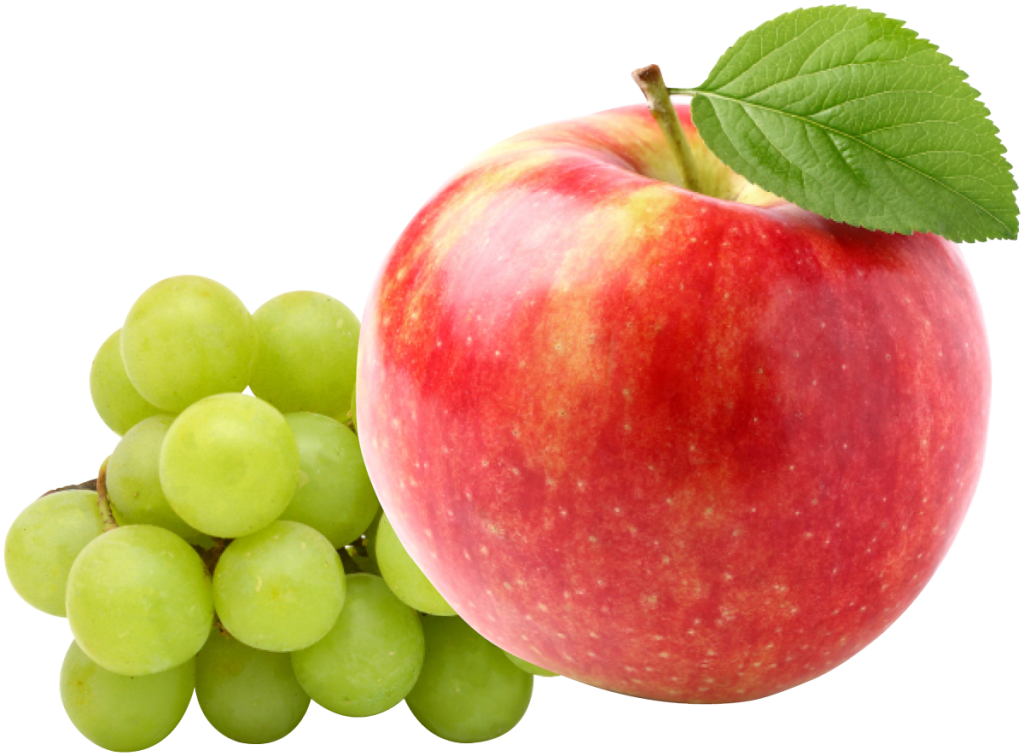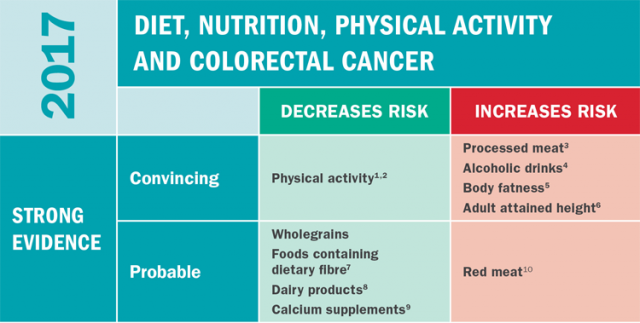Colorectal cancer is the third most common cancer in the US. Obesity is one of the many lifestyle factors associated with an increased risk of colorectal cancer.
AICR’S latest report on colorectal cancer found that eating fiber-rich foods, exercising regularly and maintaining a healthy weight can lower your risk. Eating high amounts of red and processed meat, drinking excess alcohol and carrying extra body fat were all linked to a higher risk.
Lifestyle and colorectal cancer risk.
- Weight
As you gain excess body fat, your risk for colorectal cancer increases.
- Being overweight and obese increases blood levels of insulin and related hormones that can encourage the growth of cancer.
- Excess fat also creates a pro-inflammatory environment in the body that can contribute to the growth of cancer.
- Alcohol
Risk for colorectal cancer increases as alcohol intake increases, starting at about 2 or more drinks per day.
- The body converts alcohol into acetaldehyde, a potent carcinogen.
- Alcohol may act as a solvent, making it easier for carcinogens to penetrate the cells lining the colon.
- Alcohol can adversely affect how efficiently the body repairs DNA damage and defends against free radicals.
- Physical Activity
Regular physical activity protects against colorectal cancer.
- Age
The older you are, the greater your risk.
- Red Meat
Diets high in beef, pork and lamb increase colorectal cancer risk, which is why AICR recommends limiting red meat to 18 ounces (cooked) per week.
- Red meat contains heme iron, which has been linked to the kind of cellular damage that increases risk.
- The red meat stimulates the production of potentially carcinogenic N-nitroso compounds in the body.
- Diets high in beef, pork and lamb increase colorectal cancer risk.
- Processed Meats
Regular intake of even small amounts of cold cuts, bacon, sausage and hot dogs increases colorectal cancer risk.
- Nitrates are added to many processed meats; they contribute to the production of N-nitroso compounds, which can damage the lining of the gut.
- Healthy Diet
A plant-based diet with a variety of fruits, vegetables, beans and whole grains can lower risk.
- Foods containing fiber lower risk for colorectal cancer
- Plant foods contain a wide variety of substances — such as carotenoids, selenium, lycopene — that may protect against cancer in many ways.
- Oatmeal, brown rice and other wholegrains lower risk for colorectal cancer.
- Smoking
- People who smoke increase their risk of developing colorectal cancer.

Foods that fight colorectal cancer.
No single food can protect you against cancer by itself. But research shows that a diet filled with a variety of vegetables, fruits, whole grains, beans and other plant foods helps lower risk for many cancers.
Cancer Updates
The science of survival.
AICR’s health guides and recommendations are developed from research that focuses on how nutrition and lifestyle affect the prevention, treatment, and survival of cancer. Paramount to our updates is the Continuous Update Project which helps you stay on top of new findings, and understand the data that sits at the center of our work.






